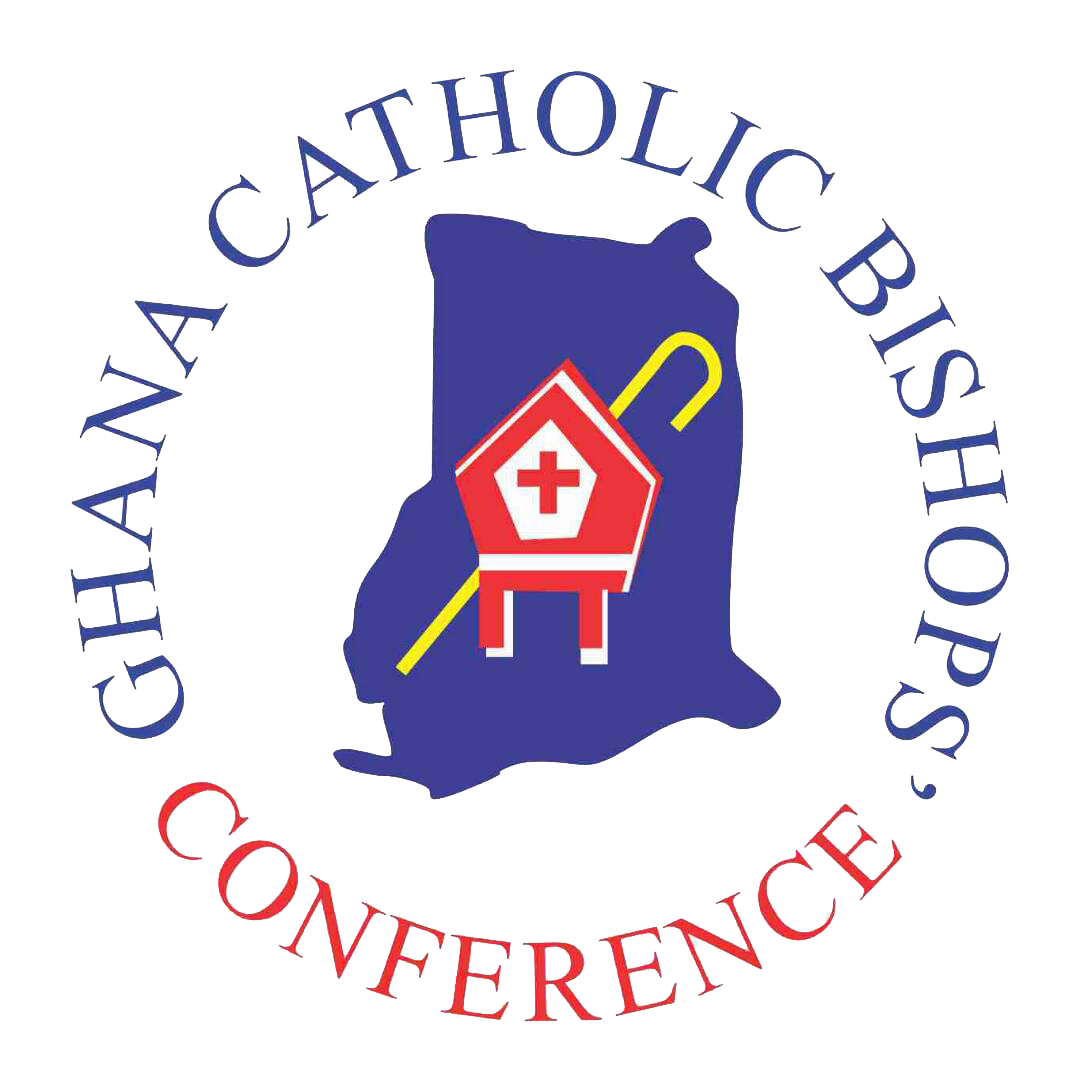LENTEN PASTORAL LETTER OF THE GHANA CATHOLIC BISHOPS TO OUR CATHOLICS AND TO ALL MEN AND WOMEN OF GOODWILL
Introduction
My dear brothers and sisters in Christ, Lent is once again here with us and we, your Bishops, greet you, our Catholic faithful, Christians of other churches, all other believers in God and all men and women of goodwill in our dear country Ghana, in the name of God our Almighty Father, of Jesus Christ our Lord and Saviour and of the Holy Spirit, the Sanctifier.
What is Lent?
Lent is a period of fasting, penitence, and self-denial traditionally observed by Christians in preparation for Easter. In Western churches it begins on Ash Wednesday, six and half weeks before Easter, and provides for a 40-day fast (Sundays being excluded) in imitation of Jesus Christ who, at the beginning of his ministry, was led by the Spirit into the wilderness where he “fasted forty days and forty nights” (Mt. 4:1-11; cf. Mk. 1:12-13; Lk. 4:1-13). Lent also recalls the fasting and prayer done in connection with repentance found in various parts of the Old Testament, for example, in the story of the prophet Jonah and the people of Nineveh. Following the preaching of Jonah, the people of Nineveh “proclaimed a fast and put on sackcloth, from the greatest to the least” (Jonah 3:5). Attention can also be drawn to Joel 2:12ff: “Come back to me with all your heart, fasting, weeping, mourning. Let your hearts be broken, not your garments torn”.
During the liturgy of Ash Wednesday, the priest makes the sign of the cross on our foreheads with ashes – a symbol of repentance – as he says, “Turn away from sin and be faithful to the gospel”. Alternatively he may say: “Remember, man, you are dust and to dust you shall return”.
Dearly beloved, Lent is the favourable time given by God to us Christians to examine critically our spiritual, personal and social lives; it is the time of favour given to us to embark upon the journey of repentance, reconciliation and renewal in accordance with the Good News of Christ. All this is symbolized by the gesture of ashes put on our foreheads.
Conflicts in our Region – A Call to re-examine our Lives
As Lent has to do with repentance, reconciliation and renewal, we, your Shepherds, would like to invite you, our dear People of God, fellow Christians in this country, all believers in God, and men and women of good will, to reflect on the conflicts in our part of the world. Let us cast our minds to the seemingly intractable conflicts, first in our own country, then in our sub-region of West Africa, and further on in North Africa and elsewhere.
Conflicts in Ghana
The first of these apparently irresolvable conflicts in Ghana is the case of Dagbon. We are aware that the eminent chiefs and traditional leaders, the previous and present governments, the Judiciary, the National Peace Council, various faith-based and civil society organizations have all tried to resolve the matter peacefully but have hardly made any headway. In addition to the Dagbon conflict are the many other long-standing chieftaincy disputes and violent conflicts in nearly every region of the country.
We invite every Ghanaian to reflect on the great loss of lives, of property and resources and the bleak future awaiting generations to come as a result of human intransigence, unbridled thirst for power and entrenched partisan positions. What is currently more worrying is how these human tragedies have been and are still being politicized in our tension-charged political atmosphere. The present situation is seemingly one of impasse. What is God calling us to do about Dagbon and about those chieftaincy disputes in our country?
Conflict in La Côte d’Ivoire
Next is the sad situation to the west of our country. La Côte d’Ivoire, according to internationally reliable reports, is slowly but surely slipping into another bout of civil war. The reason for this is disagreement over electoral results, with its claims and counter-claims by the two political opponents. Once again sin, evil and human hard-heartedness, intransigence and political intrigue are at work, bringing in its wake untold suffering and hardships to citizens and sojourners in that once beautiful, prosperous and peaceful country.
Dearly beloved, it is for this reason that we in Ghana should thank God. We should indeed thank God for our two political party leaders who after the last elections displayed great love for this country and admirable democratic maturity in leading their party supporters to the peaceful and magnanimous acceptance of the election results as declared by the Electoral Commission. Have we thanked God enough for all his blessings and graces showered upon this country Ghana and for the current state of relative peace?
At this very crucial time, what can we in Ghana, as Christians and believers, brothers and sisters of many in La Côte d’Ivoire, do to help bring peace to this our sister-country? How can we help to advance the efforts by the African Union, the international community and other institutions for dialogue and negotiations in order to forestall another civil war in La Côte d’Ivoire? Only God knows how many people, Ivorians and others, will suffer gravely and unnecessarily, now and for generations to come, should the worst happen there. Only God also can guide all the current human efforts towards lasting peace in that country.
Conflicts in Other Parts of Africa
Even if we can thank God for some relative peace in the West African sub-region, let us look at North Africa and what is presently happening in Tunisia, Egypt and Libya. How many are the innocent human lives already lost, sadly and senselessly? Many African governments, including our own, are doing their best to bring home our brothers and sisters caught up in the cross-fire of these conflicts. We can only commend the governments for this.
What must we do now?
As Christians and believers in God, what must we do during this time of Lent? God says, “at the very favourable time, I have listened to you!” (2 Cor. 6:2). Is it not high time we called on God to listen to our supplications for Dagbon and other conflict zones in Ghana, for La Côte d’Ivoire and for peace everywhere else in Africa?
We, your Shepherds, now invite you this Lent to read and meditate on the Book of the Prophet Jonah, particularly the third chapter. It says:
“The word of the Lord God was addressed to Jonah… Up…go to Nineveh…and preach to it as I shall tell you”. Jonah set out and…proclaimed: ‘Only forty days more and Nineveh will be overthrown.’ And the people of Nineveh believed in God; they proclaimed a fast and put on sackcloth, from the greatest to the least. When the news reached the king of Nineveh, he rose from his throne, took off his robes, put on sackcloth and sat down in ashes. He then had it proclaimed throughout Nineveh, by decree of the king and his nobles, as follows: ‘No person or animal, herd or flock, may eat anything; they may not graze, they may not drink any water. All must put on sackcloth and call on God with all their might; and let everyone renounce his evil ways and violent behaviour. Who knows? Perhaps God will change his mind and relent and renounce his burning wrath, so that we shall not perish’.
“God saw their efforts to renounce their evil ways. And God relented about the disaster which he had threatened to bring on them, and did not bring it.”
Dearly beloved in Christ, there is so much imminent disaster waiting to befall us and all of humanity. We have the example of the people of Nineveh to emulate in the face of the above-mentioned conflicts that threaten to bring disaster upon us in Ghana, in the West African sub-region and even on our African continent at this very critical time in our history.
Let us imitate the people of Nineveh, employing the three “weapons” of prayer, fasting and works of charity, as Jesus himself teaches in Matthew 6:1-18.
Prayer, Fasting and Good Works
Dear People of God, in response to the words of the Prophet Jonah that “only forty days more and Nineveh will be overthrown”, we are told that that the people of Nineveh “believed in God; they proclaimed a fast and put on sackcloth from the greatest to the least”. We are also told that even the king joined in this act of penitence and officially further decreed that living beings be compelled to fast from food and drink and also put on sackcloth. In addition, the king of Nineveh decreed that “all were to renounce their evil ways and stop their violent behaviours; all were to call on God with all their might. Who knows? Perhaps God will change his mind and relent and renounce his burning wrath, so that we shall not perish.”
Dear brothers and sisters, God is indeed merciful and kind. As we read further in the Book of Jonah, “God saw their efforts…(and) God relented about the disaster…and did not bring it” on his people.
Dearly beloved in Christ, for these forty days and forty nights of Lent, we invite and encourage all our fellow Ghanaians to:
1) faith-filled prayer such as “calling on God with all our might…”,
2) the renunciation of “our evil ways and violent behaviours”, supported by
3) intense fasting and penitence, and
4) works of charity, especially doing good to the poor and needy, to widows and orphans, etc., in our neighbourhoods.
These acts of prayer, fasting and good works done with sincerity of heart like what the people of Nineveh did cannot but obtain for us the grace of God’s merciful and loving ear to our supplications, and God’s forgiving heart for our iniquities and ingratitude. May God grant our supplications on behalf of our dear country Ghana, La Côte d’Ivoire and indeed the whole of Africa.
In conclusion, we, your Shepherds, exhort all our priests and religious and Church lay leaders to make sure that for the coming forty days of Lent, our parish and Church communities take up more intensely the various other Lenten activities such as the Stations of the Cross, fasting and obligations of Lenten Fridays, communal prayers and recitation of the Holy Rosary, regular or weekly exposition and adoration of the Blessed Sacrament, pilgrimages to Marian shrines and sanctuaries, etc., and many more, all for the resolution of the above-mentioned conflicts and threats of disaster.
May God see our efforts at prayer, fasting and doing good works and grant our wishes. May Mary, the Mother of Jesus, intercede for our dear country Ghana, for La Côte d’Ivoire and for the whole of Africa!
“Glory be to him whose power, working in us, can do infinitely more than we can ask or imagine; glory be to him from generation to generation in the Church and in Christ Jesus forever and ever. Amen!” (Eph. 3:20-21).
Most Rev. Joseph OSEI-BONSU,
Bishop of Konongo-Mampong &
President, Ghana Catholic Bishops’ Conference.

